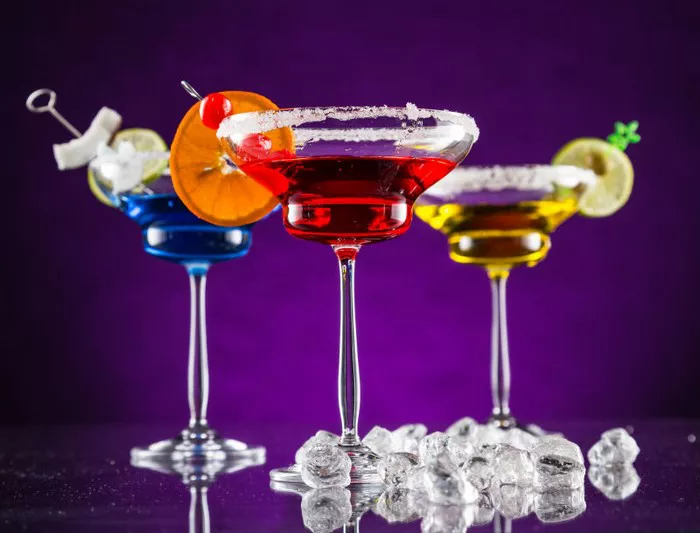Vermouth, a fortified wine infused with a variety of botanicals, has long been cherished by mixologists and cocktail enthusiasts alike for its ability to elevate drinks with its complex flavors. In this article, we embark on a journey to explore the diverse realm of cocktails that feature vermouth as a key ingredient. From classic concoctions that have stood the test of time to innovative modern creations pushing the boundaries of mixology, vermouth remains a staple in the bartender’s arsenal, offering endless possibilities for crafting exceptional libations.
Types of Vermouth: A Spectrum of Flavors
Vermouth comes in various styles, each distinguished by its flavor profile and intended use in cocktails. The three primary types are sweet, dry, and bianco (or white). Sweet vermouth, characterized by its rich, herbal sweetness, adds depth and balance to cocktails like the Manhattan and the Negroni. Dry vermouth, with its crisp and slightly bitter notes, is a cornerstone of classics such as the Martini, providing a perfect counterpoint to the sharpness of gin or vodka. Bianco vermouth, a newer addition to the vermouth family, offers a delicate sweetness and floral aroma, lending itself well to lighter cocktails and aperitifs.
The type of vermouth used can significantly influence the overall flavor profile of a cocktail, so it’s essential to choose wisely based on the desired taste experience.
Classic Cocktails with Vermouth: Timeless Elixirs of Flavor
Classic cocktails have long relied on vermouth to create harmonious flavor profiles that stand the test of time. The Manhattan, with its blend of whiskey, sweet vermouth, and bitters, epitomizes sophistication and balance. The Martini, a quintessential cocktail, owes much of its allure to the interplay between dry vermouth and gin or vodka, resulting in a timeless libation enjoyed by many. The Negroni, a beloved Italian cocktail, achieves its distinctive bitterness and complexity through the combination of gin, Campari, and sweet vermouth, making it a staple in any cocktail enthusiast’s repertoire.
In these classics, vermouth serves as more than just a supporting player—it’s a star ingredient that adds depth, complexity, and a touch of elegance to every sip.
Modern Cocktails with Vermouth: Pushing the Boundaries of Mixology
While classic cocktails continue to hold a special place in the hearts of cocktail aficionados, modern bartenders are continually pushing the boundaries of mixology by experimenting with innovative flavor combinations and techniques. From avant-garde interpretations of classics to entirely new creations, vermouth remains a versatile canvas for creativity.
Innovative mixologists are incorporating vermouth into modern cocktails in unexpected ways, such as infusing it with unique botanicals, incorporating it into molecular mixology techniques, or pairing it with non-traditional spirits and ingredients. These modern creations offer a fresh perspective on vermouth’s potential, appealing to adventurous palates and inspiring new cocktail trends.
Tips for Using Vermouth in Cocktails: Mastering the Art of Mixology
When using vermouth in cocktails, it’s essential to consider several factors to ensure the best possible results. Firstly, selecting the right type of vermouth is crucial—sweet, dry, or bianco—depending on the desired flavor profile of the drink. Experimenting with different brands and styles can also offer new insights into flavor nuances.
Additionally, proper storage is essential for maintaining vermouth’s freshness and flavor. Keep vermouth refrigerated after opening and consume it within a few months to preserve its integrity. Avoid exposing it to direct sunlight or high temperatures, as this can degrade its quality over time.
Lastly, don’t be afraid to experiment! Mixology is as much art as it is science, so feel free to play with proportions, garnishes, and additional ingredients to tailor cocktails to your taste preferences.
Vermouth Substitutes: Exploring Alternatives
While vermouth is a unique ingredient, there are occasions when substitutes may be necessary or preferred. Other fortified wines, such as Lillet Blanc or Cocchi Americano, can often stand in for vermouth in cocktails, offering similar flavor profiles with subtle differences. Dry white wine can also be used as a substitute in a pinch, though adjustments to the recipe may be needed to compensate for the lack of sweetness or herbal complexity.
Experimenting with different substitutes can lead to exciting new flavor combinations and unexpected discoveries, expanding your repertoire of cocktail options.
Expert Recommendations: Insights from the Pros
To provide further insight into the world of vermouth cocktails, we reached out to bartenders and cocktail experts for their recommendations and tips:
“Vermouth is a versatile ingredient that can elevate any cocktail. My go-to is the Boulevardier, a riff on the Negroni that swaps gin for bourbon, resulting in a richer, more robust flavor profile.” – Emily Davis, Head Mixologist at The Crafted Cocktail Bar
“When using vermouth in cocktails, I always recommend using fresh, high-quality ingredients and experimenting with different ratios to find the perfect balance. Don’t be afraid to get creative!” – Marcus Johnson, Beverage Director at The Artisanal Lounge
Conclusion: Elevating Cocktails with Vermouth
In conclusion, vermouth’s versatility and complexity make it an indispensable ingredient in cocktail culture. Whether crafting timeless classics or pushing the boundaries of mixology with innovative creations, vermouth offers endless possibilities for creating exceptional drinks that delight the senses. By understanding the different types of vermouth, mastering the art of mixology, and embracing experimentation, you can unlock the full potential of this beloved spirit and elevate your cocktail game to new heights. Cheers to the art of vermouth cocktails!


